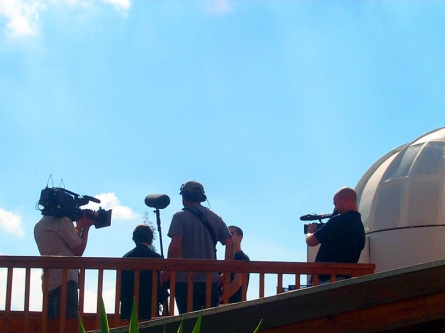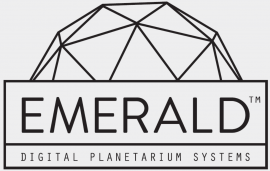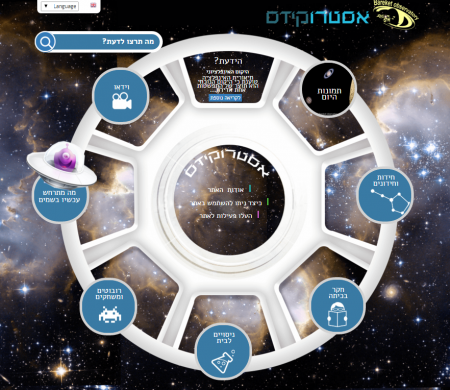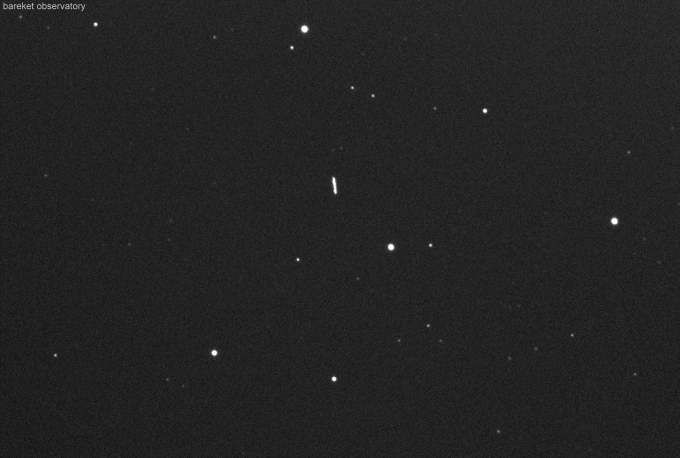The Bareket observatory in Israel - about us
The Bareket Observatory is a scientific & public outreach astronomical facility.
Promoting science-education and astrophysical research among the local and global community.
The facility located near Jerusalem, facing the Judea mountains in Israel.
Students from local high schools to world-class research facilities like NASA, JPL and Berkeley University have used our technology to uncover the secrets of the universe.
The primary function of the observatory is science, education and global astronomy outreach through the Astro-Edu network program and by Broadcasting live astronomical events via our Remote Internet-controlled robotic telescope.
Image: Perseid meteor shower public observation
One of the first achievements of the observatory was the assignment of an official Observatory Code by the IAU/MPC (International Astronomical Union / Minor Planet Center).
The IAU/MPC enforces a strict protocol of observation of several asteroids, each at a different magnitude, for several consecutive nights to justify the approval of an Observatory Code.
The Bareket Obervatory was assigned Observatory Code B35.
The Astro-Edu-Network initiative provides a number of fascinating resources for astronomy and space, including access to virtual and remote robotic telescopes, as well as interactive applications. With them, students can explore mathematics, physics, geography and other subjects using genuine astronomy and space-related data, and making real scientific observations.
Image: astronomical observation at the Bareket observatory, Israel
The observatory team
The team at the Bareket observatory is a unique combination of people with technical expertise, aerospace and education background.
We are developing unique and sophisticated tools for astronomy education and research, as:
- Remote robotic telescopes accessible via the web
- Mars diorama with real rover-robot that can be controlled through the Internet
- Digital planetarium projection systems - via the EMERALD™ Planetariums
- Educational astronomical content
- Robotic Observatory Fiberglass domes & astronomical automation systems
Outreach & Education
We are an educational observatory; our mission is to act as an educator’s resource for schools and educational institutions.
Our staff is involved in conducting research projects such as NEO's-Asteroids, SN, radio astronomy, spectroscopy and remote telescope control via the web.
The observatory is open to anyone who has an interest in the night sky and wishes to have fun learning about the universe in a scientific manner.
The Bareket observatory is the largest research - educational observatory in Israel. We are also connected to a Variety of international astronomical and educational organizations.
We maintain many astronomy courses and classes within the educational system as an integral part of the observatory's activities. Our main objective is to light that "intuitive spark" by presenting the heavens in all its glory to those students that represent the next generation of researchers.
The observatory also serves as the official IDA Israel section.
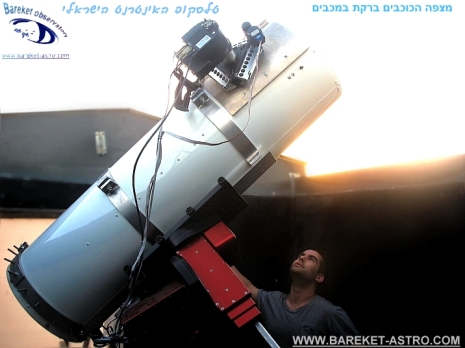
Image: the observatory's remote web-controlled-telescope
We are committed to introduce the universe for every one, no matter where they live or from where they come. From time to time we produce live astronomical web casts of selected cosmological events, as solar eclipses, meteor showers the lunar surface, transits etc.
Besides the regular activities that are taking place at the observatory, we also set up public observation in remote areas during astronomical weekends. Once a year we make the Astronomical Olympics for schools.
Students research
As an integrated element of the observatory's research & outreach activities - we are conducting research project with students from across the globe. Below are few abstracts of research projects conducted by high-school students via our remote telescope:
2. Binary stars photometry & 3D modeling [PDF]
 Image: high school students searching for asteroids, using the Astro-EDU-network at the Bareket observatory, Israel.
Image: high school students searching for asteroids, using the Astro-EDU-network at the Bareket observatory, Israel.
Innovation
The observatory developed the innovative EMERALD™ DIGITAL PLANETARIUM system:
The EMERALD™ digital planetarium projectors and planetarium domes were created specifically for fulldome projection.
Our unique and innovative projection products revolutionized the digital planetarium field and offer the most advanced technology currently available on the market. Our products are designed and built with emphasis on education as well as entertainment usages, with a plug-n-play approach.
Movie - remote observatory systems development
Main goals:
The observatory operates for educational and scientific purposes and is developing the most unique and sophisticated educative and teaching astronomical materials in the region.
· Developing new methods of communication
· Developing new techniques to improve multicultural cooperation, with emphasize on exact sciences
· To promote and distribute the latest technological and astronomical advances within the educational system
· Adapting the use of new astronomical, technological and scientific tools to enhance the learning experience
· To enable all students with equal opportunity to benefit from the advances in our astronomical research program
Visiting the Observatory
The observatory is generally open to the public only during special events, which can be found on the live events page. Our events usually run in the evenings, but on occasion and during the summer months we do run events in the daytime for families.
Members of the public, during our events, which must be booked in advance, are welcome to look through our telescopes as part of their visit, with our expert telescope guides on hand to show you how they work. For specialist event evenings such as astro photography nights, you are also free to bring along your own equipment and use this at the observatory. We also welcome private event bookings, and you should contact us for more information on how to book these.
Note: The facility is only open to members of the public who have booked in advance.
Start exploring the universe, via:
The Astro-EDU-Network
Astro-kids



